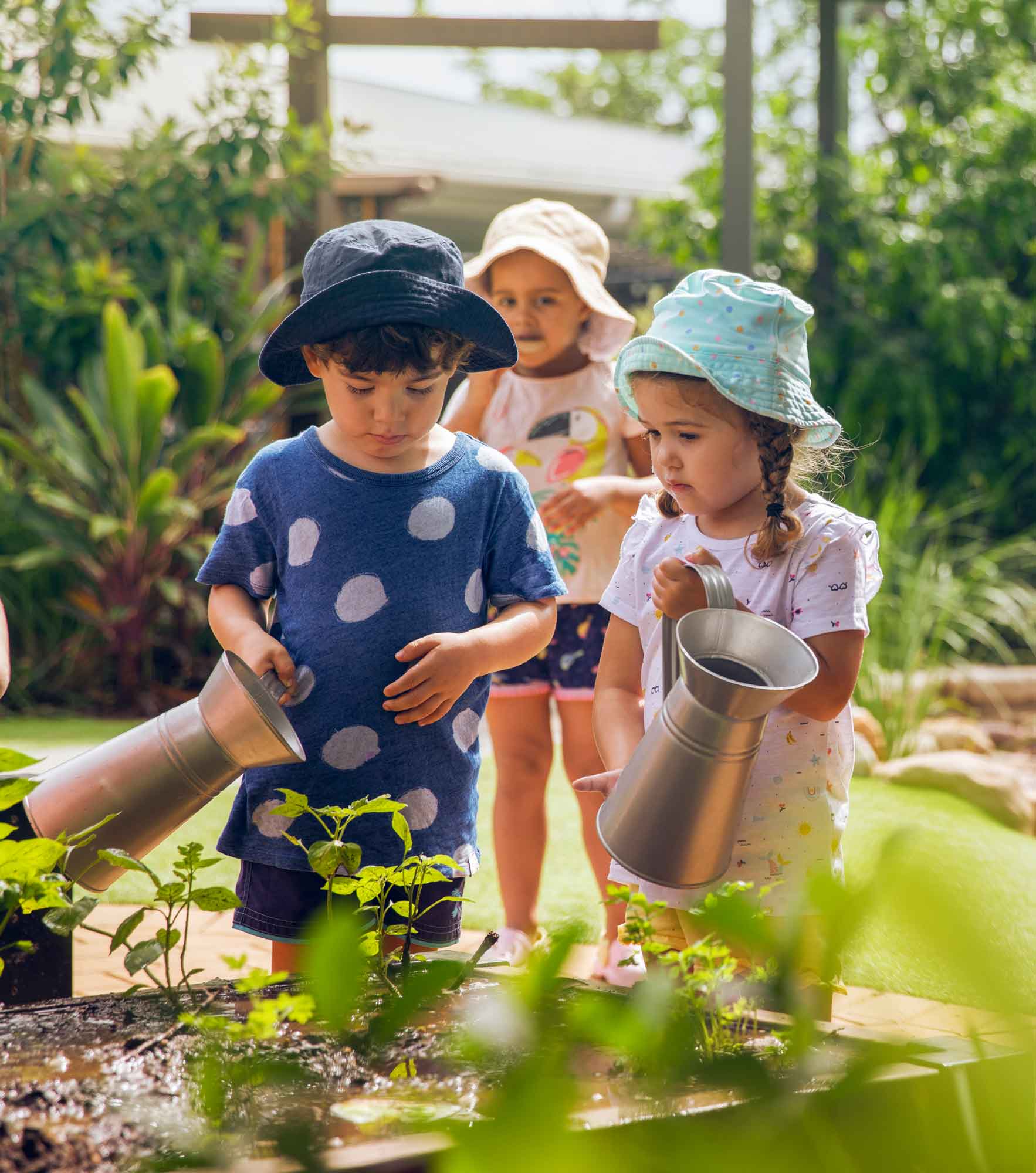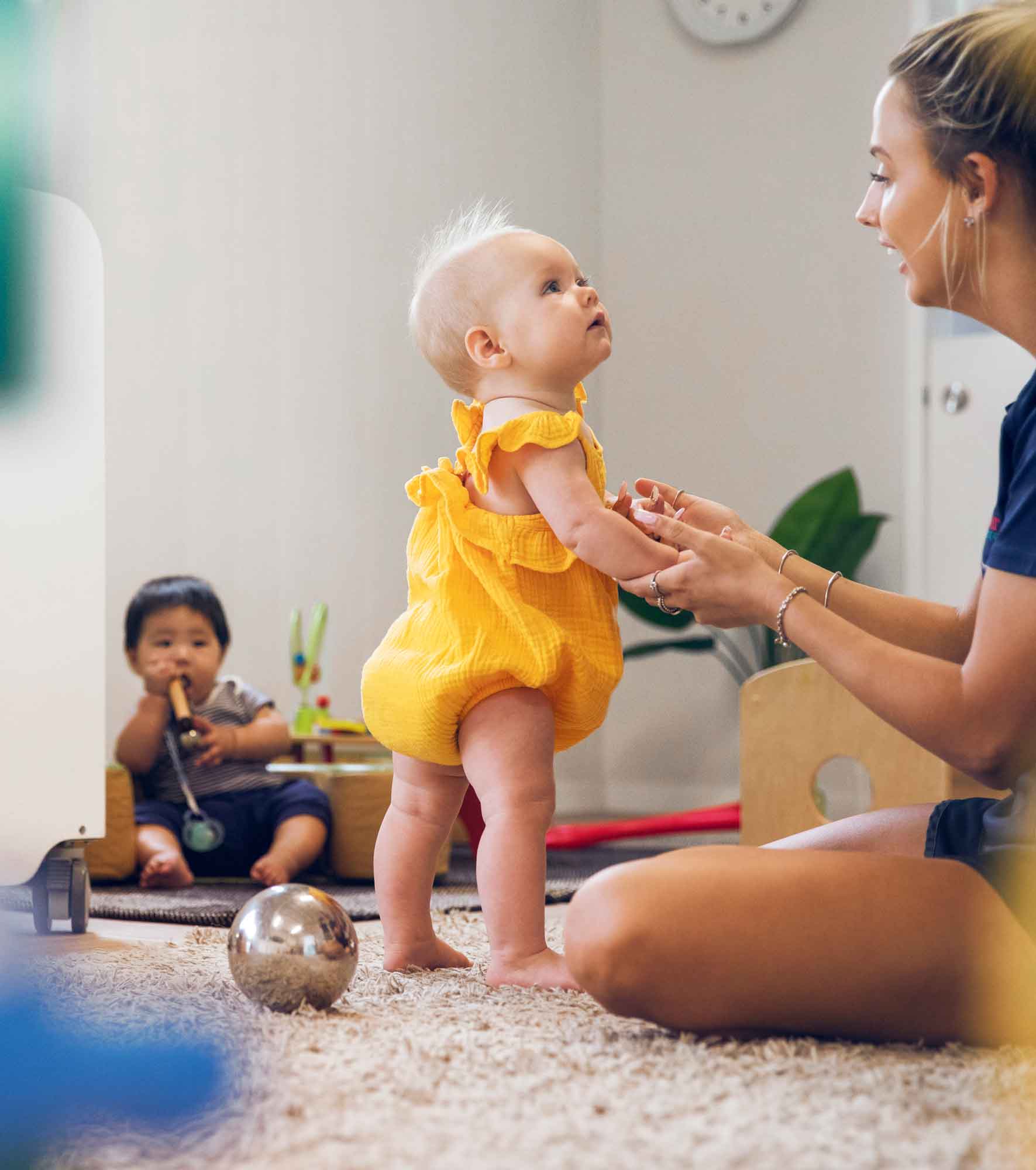Early Learning Advice
Play-Based Learning Activities At Home
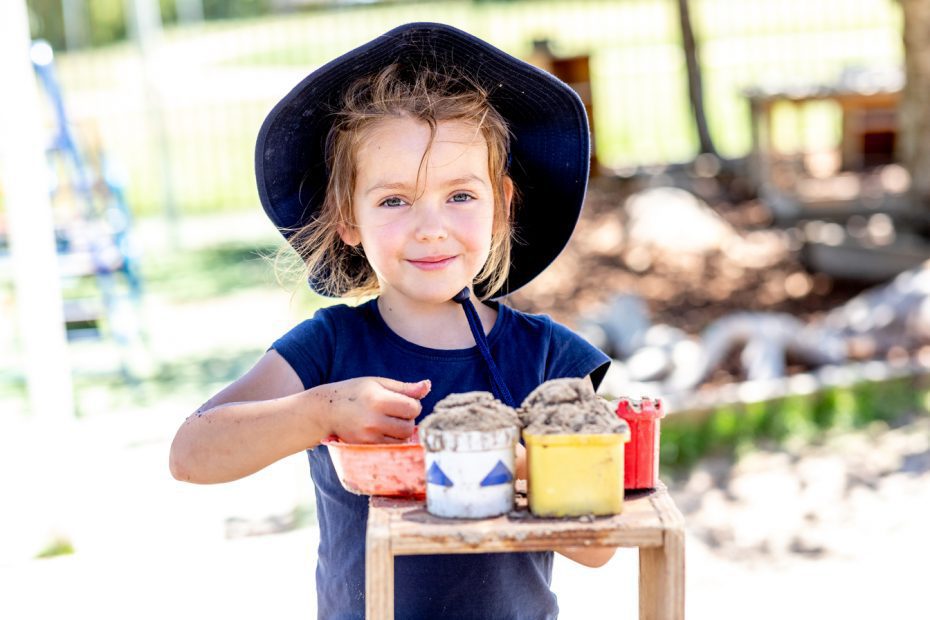
We are currently in a time no other, where we have been asked to stay at home with the aim to keep safe and healthy. This is not what we are used to, and not how we have established our everyday lives, but it is the world we currently live in and it is our chance to adjust and turn it into a positive experience for our and families. Here are some fun play-based learning activity ideas to enjoy with your children at home, you can also find more early learning programs here.
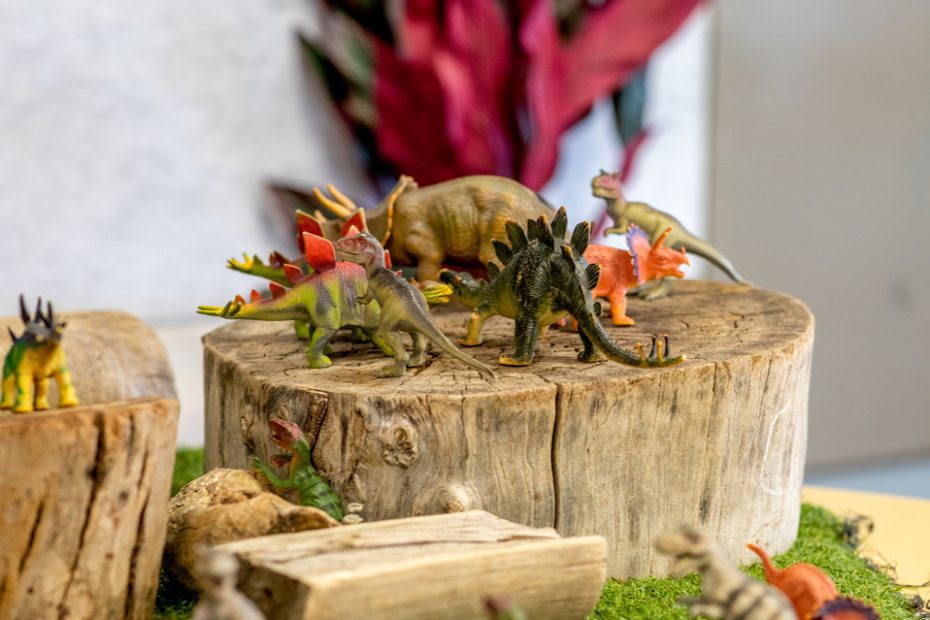
Dinosaur Worlds
Age Group: 3 – 5 years
Materials needed:
- Table or floor, could be set up anywhere, ensure space for creating
- 1 tray (preferable with 5 cm sides to keep rocks in e.g. litter trays (unused) are a perfect size)
- Variety of dinosaurs, all different types and sizes
- Rocks – different sizes
- Selection of small logs or wooden blocks
- Dinosaur books
- Other resources like branches, different coloured materials or small artificial grass mats or off cuts are also great
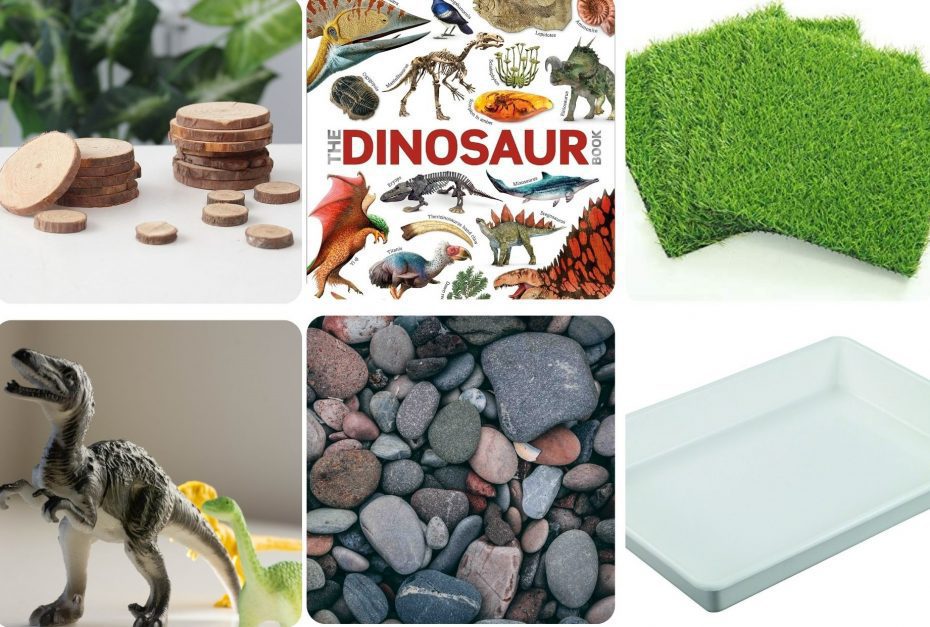
Method:
- Gather resources and encourage child/ren to assist in setting up the small dinosaur worlds. First, add rocks to the trays.
- Use the logs and wooden chips to make trees, paths, homes for the dinosaurs.
- You may like to use the grass to make pathways between trays or have a tray with the grass.
- Add the dinosaurs and let the role play begin!
Participation Questions:
- Provide children with clipboards and paper, pencils or felt pens. Ask children to draw you their dinosaur world or a picture of their favourite dinosaur.
- Do you know which dinosaurs eat meat and which ones eat plants? How do you know? Provide them with correct terms e.g. omnivore (eats plants and meat), carnivore (meat eater) and herbivore (plant eater).
- Can we see dinosaurs anymore? Why not?
- Where do you think we can see dinosaur fossils?
- Do you know who studies dinosaur fossils?
- What dinosaurs would you like to know more about?
- How can we find this information?
Development Links:
- Creativity and imagination– children explore their creative skills and express their imagination and ideas through role play.
- Early literacy skills– the books can be utilised to extend the children’s knowledge and ideas about dinosaurs. Further ideas for extensions of children’s thinking can also be gathered from conversations.
- Science– Children design and create the environment for dinosaurs. Learn about their habitats and explore what it might have been like living millions of years ago. Develops knowledge about the different species of dinosaurs e.g. characteristics (wings, horns, scales, claws, spines, spikes, long necks and tails) and different foods.
- Fine motor, problem-solving– creating environments using open-ended materials, stacking and balancing rocks and logs, assessing if the environment suits the size and type of dinosaur.
Early Years Learning Framework Links:
- Responsive teaching and scaffolding– respond to children’s ideas and play through open-ended questions, interactions, and feedback.
- Learning– children use play to investigate, imagine and explore ideas.
- Responsive teaching and scaffolding– respond to children’s ideas and play through open-ended questions, interactions and feedback
- Learning– children use play to investigate, imagine and explore ideas
- Environment– equipment has multiple uses, resources support play-based learning
Here at Journey, our little explorers thrive in classrooms where everyone is of a similar age and development. Learn more about Journey’s environments
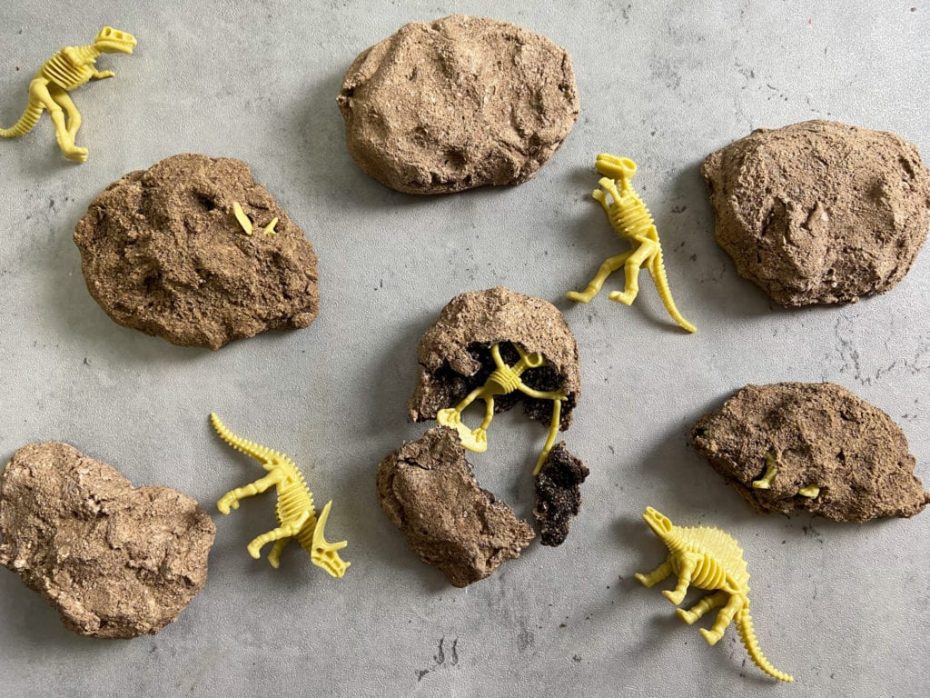
Make your own dinosaur fossil
Age Group: 3 – 5 years
Materials needed:
- 2 cups of plain flour
- 1 cup of cooking salt
- ½ cup of coffee mixed with water
- 1/3 cup of coffee grounds
- Small dinosaurs, shells, leaves, rocks, seed pods and any other natural materials you can find
- Mixing bowl
- Measuring cups
- Mixing spoon
- Baking trays with baking paper
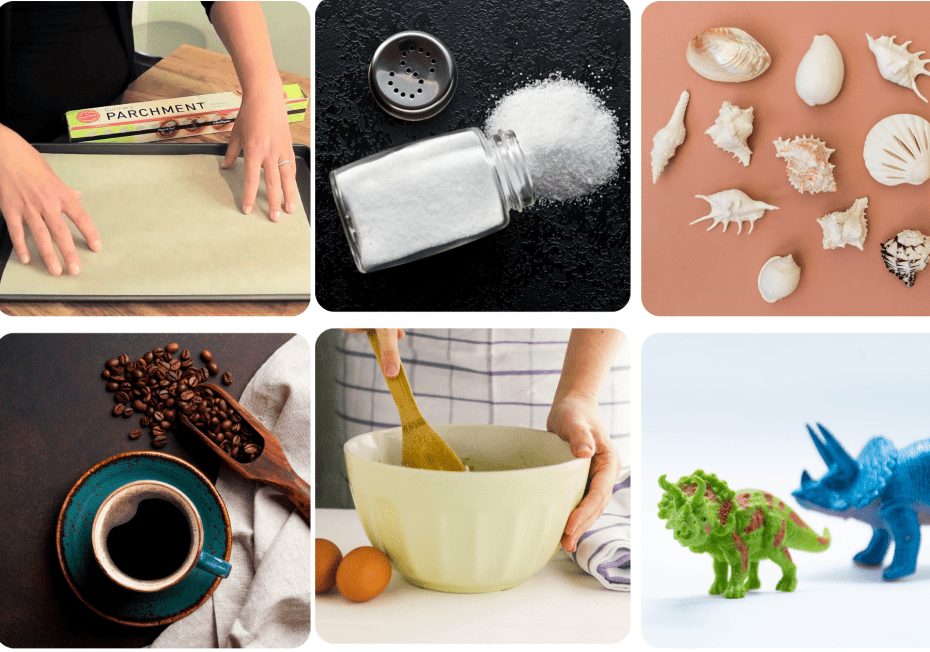
Method:
- Add 2 cups of plain flour to the mixing bowl
- Add 1 cup of salt
- Stir through the 1/3 cup of coffee grounds
- Gradually add 1 tablespoon of coffee mixed in water until you get a dough consistency, if too sticky just add a little more flour
- Knead the dough together and separate into smaller balls and flatten into disks
- Use the dinosaurs, shells and other natural materials to make impressions in the dough and place on baking tray. If you would like to hang them, put a hole in the top of the disk for the string. Leave to dry overnight (or longer depending upon weather and how think the dough is)
- The dinosaurs can also be hidden inside dough balls and cooked in the oven on low for a couple of hours and then left to dry
- The children can ‘dig for dinosaurs’ and uncover the mystery of fossils using the cooked dough balls
- Once dry, the other disks can also be painted
Participation Questions:
- Can we see dinosaurs today? Where did they go?
- If scientists found fossils of dinosaurs, how do you think they knew what they looked like?
- What can a fossil tell us do you think?
- Where do you think we could find more information?
Development Links:
- Mathematics– measuring ingredients, reading numbers on recipe and measuring cups
- Literacy– model using a recipe, following directions
- Creativity and imagination– children explore their creative skills and express their imagination and ideas through sensory play
- Fine motor development– manipulating a variety of tools, making impressions and manipulating the dough to ensure they have covered their dinosaurs
- Science-exploring how fossils are formed, elements needed to form a fossil, discussing how dinosaurs were discovered and inferences about them made from fossils
Early Years Learning Framework Links:
- Responsive teaching and scaffolding– respond to children’s ideas and play through open-ended questions, interactions and feedback
- Learning– children use play to investigate, imagine and explore ideas
- Environment– equipment has multiple uses, resources support play-based learning
Learn more about play-based learning, visit the Queensland Government website: Early Childhood Education and Care
